 The Mummy of Mayfair (An Irregular Detective Mystery #2) by Jeri Westerson
The Mummy of Mayfair (An Irregular Detective Mystery #2) by Jeri Westerson Format: eARC
Source: supplied by publisher via NetGalley
Formats available: hardcover, ebook
Genres: historical fiction, historical mystery, mystery
Series: Irregular Detective #2
Pages: 224
Published by Severn House on July 2, 2024
Purchasing Info: Author's Website, Publisher's Website, Amazon, Barnes & Noble, Kobo, Bookshop.org, Better World Books
Goodreads
Private investigators Timothy Badger and Benjamin Watson take on another unusual and baffling case in Victorian London when a mummy unwrapping party takes a chilling turn.London, 1895. Although their last high profile case was a huge success, private detectives Tim Badger and Benjamin Watson know they can't afford to turn down any work, despite financial assistance from their mentor, Sherlock Holmes.So when the eminent Doctor Enock Sawyer of St Bart's Hospital asks Badger if the duo will provide security for a mummy unwrapping party he is hosting, Badger doesn't hesitate to take the job. After all, how hard can guarding the doctor's bizarre Egyptian artefacts be? But with Doctor Sawyer running late for his own party, the 'genuine' ancient sarcophagus of Runihura Saa is unravelled to reveal the remains of . . . Doctor Sawyer! Suddenly, the pair are drawn into a new case that's stranger and twister than they could ever have imagined.
My Review:
The “irregularity” of the Irregular Detective series is in the person of one of its protagonists, Timothy Badger of the Badger and Watson Detecting Agency. Once upon a time, Badger was one of the “invisible” children who operated as Sherlock Holmes’ eyes and ears on the streets of Victorian London. In other words, Tim Badger was one of Holmes’ Baker Street Irregulars.
But when Badger aged out – or grew up – out of the Irregulars, he still needed to make his living. Which is where his partner, jack-of-all-trades Benjamin Watson comes into the picture. Both from the “wrong side of the tracks” in the East End, without a shilling between them, they set up as private detectives in the mode of Badger’s former ‘Guv’, the Great Detective himself.
As seen in the first entry in this series, The Isolated Séance, after five years of struggle to keep body and soul together, Sherlock Holmes himself gave these ‘apprentices’ a bit of a leg up. Their perseverance was rewarded with rooms in Soho – several steps up the economic ladder from their previous lodgings and office – and a seemingly magical refilling box of money for expenses.
They’re doing well for themselves. It’s a lot of hard work and shoe leather – but their successes seem to outnumber their failures. They have as much work as they can handle – and even their own chronicler in the person of newspaper reporter Ellsie Littleton.
Which leads to this second sensational case, The Mummy of Mayfair. A moniker that seems ripped, not from the headlines, but from the titles of the penny dreadful fiction that Badger loves to read. Watson prefers the newspapers and scientific journals.
After all, someone in this partnership needs to keep their feet on the ground, especially with a case that has so much potential to ascend – or perhaps that’s descend – into flights of fantasy and mythology.
It begins with a mummy unwrapping party. An all too common event among the upper crust in the 1890s. It was the heyday of ‘Egyptomania’, with all of the implications of madness the word mania implies.
Badger and Watson were hired by Dr. Enoch Sawyer to provide security for his mummy unwrapping party. A party that takes an even more macabre turn when the mummy is finally unwrapped to reveal that it’s not the mummy of Runihura Saa. It’s the much more recent mummy of Dr. Enoch Sawyer – their client – who is clearly not going to be able to pay them for the job they are about to do on his behalf.
And the game is afoot!
Escape Rating A-: First, I loved this every bit as much as the first book in this series, The Isolated Séance. Second, I need to kick myself for not figuring out that the series title is a pun until now. I sorta/kinda thought the cases were “irregular” and they are that – from a séance in the first book to a mummy in the second. But it’s the DETECTIVES – or at least one of them – that are irregular. As in, the Baker Street Irregulars. 🤦🏻
Now that I’ve got that out of my system, what makes this case so much fun is the way that it blends the real with the fictional.
Mummy unwrapping parties were a very real thing in the 1890s – as shown in the painting below by artist Paul Dominique Philippoteaux circa 1890. The scene may seem macabre to 21st century readers, but such parties were all the rage in 1895, when The Mummy of Mayfair takes place.

Rage also being an important factor – at least in this particular case – as the ‘mania’ led people to strange rivalries and illegal behaviors – as humans are wont to do in the throes of a craze, fad, or mania. It still happens now, and humans haven’t changed all that much in just a bit over a century.
As much as the insanity of this particular mania turns out to be the impetus for the actions of the characters, what is making the series work are the characters and the way they manage to fit into – and take off from – the canon of Sherlock Holmes and ITS well-known and loved protagonists.
The best detectives, whether amateur or professional, are outsiders. It’s nearly impossible for humans to set aside their preconceived notions and biases in regards to people they know. A fact which very nearly sends the entire case on a wild goose chase, as one of the possible suspects is one of Badger’s former colleagues in the Irregulars.
But the triumvirate necessary to fill all of the roles that in the original canon were filled by just two changes the structure of the investigation even as it challenges the reader to see Holmes’ Victorian age from a considerably less lofty perspective.
Timothy Badger grew up in the East End, living by his wits and the nimbleness of his fingers. His accent clearly marks him as being of a “lower class” to the toffs among whom he now finds himself – and he has to grow into his role without giving up who he essentially is.
Benjamin Watson is a black man in a white world. The first thing that anyone sees when they meet him is the color of his skin. He has the intelligence and the drive to have been anything within his reach, but his reach in the late Victorian era is circumscribed by his race.
Miss Ellsie Moira Littleton is a woman in a man’s world. Much like Charlotte Sloane in the Regency-set Wrexford and Sloane series, Ellsie has been forced by circumstances to be self-supporting, and is on the outside of the society to which she was born. As an intelligent, educated, woman who needs to make her own way, she is also an outsider but with an entirely different perspective on the society of which she was once a member.
From its sensational beginning, the case is a deeply puzzling mess. Badger and Watson’s preconceived notions about their clients and their former associates, as well as their lack of knowledge of the precise ways the rich spend their time and money and protect their positions frequently send them haring off in the wrong directions – and we follow them eagerly even as they frequently caution each other.
As I’ve said frequently within these pages, I’m a sucker for Sherlock Holmes pastiches, and that’s why I initially started this series. Now I’m hooked! I’m really looking forward to the next book in this series, The Misplaced Physician, where we’ll finally get to meet Sherlock Holmes’ Watson, as Badger and his Watson will be on the case of rescuing him! It’s a good thing that investigative reporter Ellsie Littleton will be on hand to record the adventure, as the original Watson may be too embarrassed – or too injured – to write it up himself.
We’ll certainly see, hopefully this time next year!

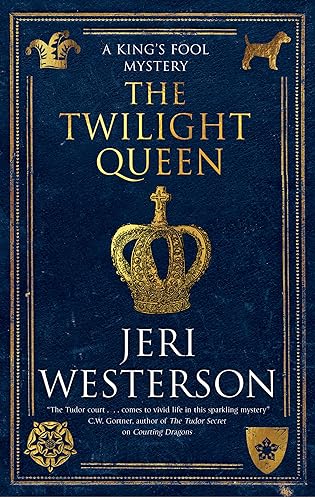 The Twilight Queen (A King's Fool mystery, 2) by
The Twilight Queen (A King's Fool mystery, 2) by  That his story – or rather the reinterpretation of his story through the characters of his six wives – has been reimagined yet again in the Tony Award winning Broadway play,
That his story – or rather the reinterpretation of his story through the characters of his six wives – has been reimagined yet again in the Tony Award winning Broadway play, 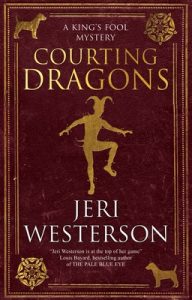 Escape Rating B: Genre blends such as historical mystery are always a balancing act – much like Will Somers position is a balancing act between making his sovereign laugh, forcing his master to stop and think – and keeping both his job and his head.
Escape Rating B: Genre blends such as historical mystery are always a balancing act – much like Will Somers position is a balancing act between making his sovereign laugh, forcing his master to stop and think – and keeping both his job and his head.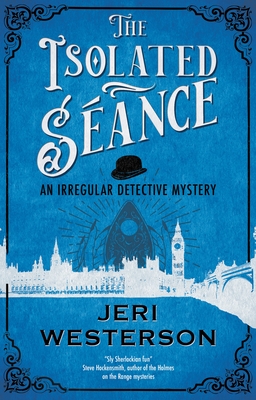 The Isolated Séance (An Irregular Detective Mystery #1) by
The Isolated Séance (An Irregular Detective Mystery #1) by 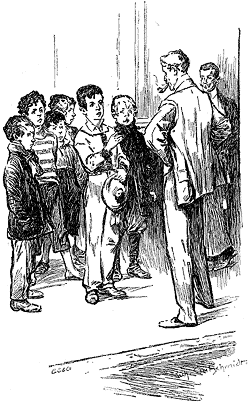
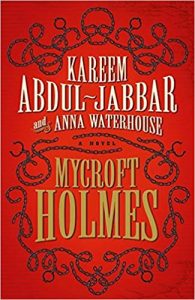 (Although both men are very young, Watson’s circumstances as a black man in a city that is prejudiced against him at every turn gives him a bit of caution and maturity that Badger sadly lacks. Watson’s perspective as someone who will always be considered an outsider even before he opens his mouth reminds this reader of the relationship between a young Mycroft Holmes and the more mature Cyrus Douglas in Kareem Abdul Jabbar’s
(Although both men are very young, Watson’s circumstances as a black man in a city that is prejudiced against him at every turn gives him a bit of caution and maturity that Badger sadly lacks. Watson’s perspective as someone who will always be considered an outsider even before he opens his mouth reminds this reader of the relationship between a young Mycroft Holmes and the more mature Cyrus Douglas in Kareem Abdul Jabbar’s 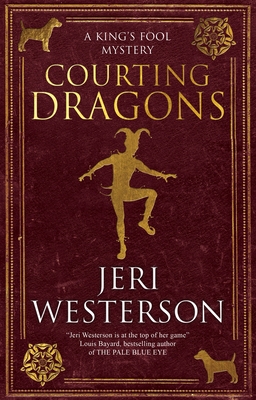 Courting Dragons (A King's Fool mystery, 1) by
Courting Dragons (A King's Fool mystery, 1) by 
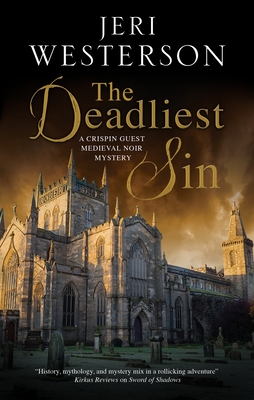 The Deadliest Sin (Crispin Guest Medieval Noir #15) by
The Deadliest Sin (Crispin Guest Medieval Noir #15) by 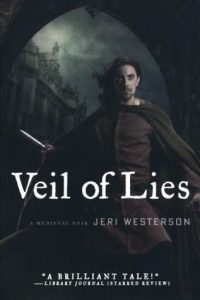 Escape Rating A-: Not every historical mystery series involves itself as much with the politics of its day along with the mystery, but from this reader’s perspective it seems like the best ones do, going all the way back to Ellis Peters’
Escape Rating A-: Not every historical mystery series involves itself as much with the politics of its day along with the mystery, but from this reader’s perspective it seems like the best ones do, going all the way back to Ellis Peters’ 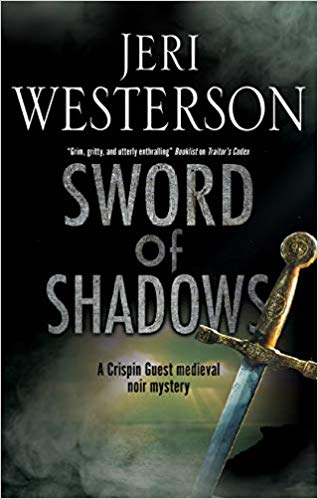 Sword of Shadows by
Sword of Shadows by 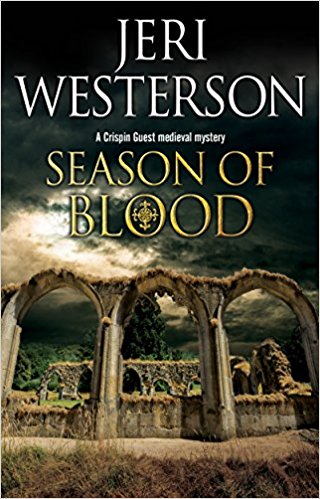 Season of Blood (Crispin Guest Medieval Noir #10) by
Season of Blood (Crispin Guest Medieval Noir #10) by 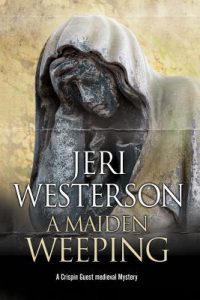 Season of Blood follows last year’s
Season of Blood follows last year’s 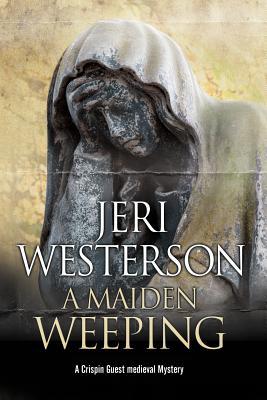 A Maiden Weeping (Crispin Guest, #9) by
A Maiden Weeping (Crispin Guest, #9) by